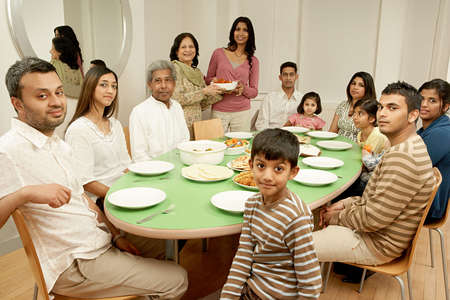How to do Multigenerational Leadership
NOTE: This is an open letter to pastors in our denomination who are over 50. At some point it will be used publicly. At this point, I’ll post it on my blog and look for your feedback! Thanks.
Dear Pastors and Leaders,
For a few years now, we have had four generations active in some level of leadership in the Foursquare Church. I’m writing this letter to the two older generations to invite you into deeper connection with the two younger generations of pastors. Though lines can tend to be fuzzy and flexible*, by most accounts, the youngest of my generation (Gen X) is turning thirty, and half of the Millennial cohort is already making their unique impact on the workforce and ministry ranks. As a pastor who sits in the middle of these generations, I wanted to offer my perspective on how we can all do this thing together.
I spent last autumn helping facilitate some small, informal gatherings between pastors from the two younger generations and our national executive leadership. Almost 200 rising leaders had the opportunity to share what was on their heart. Though many great ideas flowed, three themes repeatedly came up in conversation about what we desire from those who have gone before us:
1. Fellowship: Believe it or not, most of us don’t want to widen the generation gap. We would love to eat with you, have coffee with you, and simply talk with you about life and ministry. However, some find it difficult to initiate true fellowship with their elders. It may look like we don’t want to hang out with you, but sometimes we just don’t know how to approach you; and we’re not always sure you want to spend time with us. We would be thrilled to be invited into community—or at least to lunch or coffee—with you (by the way, younger readers, the fear of doing it doesn’t mitigate our responsibility to reach out to and ask older leaders to meet with us…this letter is to older leaders, but we all need to be looking for these kind of connections!)
2. Mentorship: What do we do when we’re hanging out? Tell us stories and ask us questions.
Fellowship can easily lead to mentorship. So as we are fellowshipping with you, tell us stories about how you kept your family together, how you avoided burnout, and how you pursued your passion for Jesus while in the ministry. Maybe you can tell us how you learned from your failures in those areas. Then, ask us how we’re doing, too. We want to grow in these things, and your hard-earned perspective is invaluable to us.
And then, stick with us, because we are seeking out longer-term relational mentors. Many of us were latchkey kids who learned to take care of ourselves from an early age, and we can figure out a lot for ourselves. What we can’t figure out are the things that come only from the wisdom of eldership. We need the commitment of spiritual fathers and mothers, grandpas and grandmas, uncles and aunts, to give us perspective about how to do life and ministry (even as we become spiritual fathers and mothers, uncles and aunts, to those younger than us.)
3. Partnership: Finally, we aren’t looking for you to step aside. I’ve heard from some older leaders that they wanted their leaders to pass the baton more quickly and make room for them earlier. We think that our current leaders have a significant contribution to make. We aren’t trying to take your place, but we want to be welcomed into collaborative partnership with you—not as the sponsored junior folks at the table, but as fellow-pastors with great ideas, unique anointing and, in some cases, years of fruitful ministry and leadership experience.
That will mean having Gen X and Millennial leaders on your pastoral staff, church council, and leadership teams, as well as empowering and releasing younger leaders into senior leadership roles: Because if you talk about building with future generations in mind, but don’t have any of them building with you, it makes it difficult to believe you. Remember, 15 to 30 years ago, you may have had areas to grow in, but you needed the experience and someone’s trust to get there, too.
We’ve heard much lately in the Foursquare Church about restocking the shelves of leadership, and building with future generations in mind. If you are really interested in doing those things, you have to build with us, not just for us. We don’t want to grab the baton from you; we want to run with you!
Grace,
Tim Clark
*Many demographers put the Silent Generation as those born from the mid 1920’s to the mid 1940’s, Baby Boomers born from the mid 1940’s through the early 1960’s, Generation X, born from the mid 1960’s through the early 1980’s and Millennials, born from the early 1980’s through the early 2000s.
Possible Personal Action Items:
- Invite a pastor 15-30 years younger than you to a meal, just to talk to them and pray with them.
- Find a leader in the generation below yours and commit to long-term relational investment in them.
- Take stock of your ministry: How many Millennial and Generation X leaders are you working with, and are any of them in, or being intentionally equipped for, key influencer positions?

